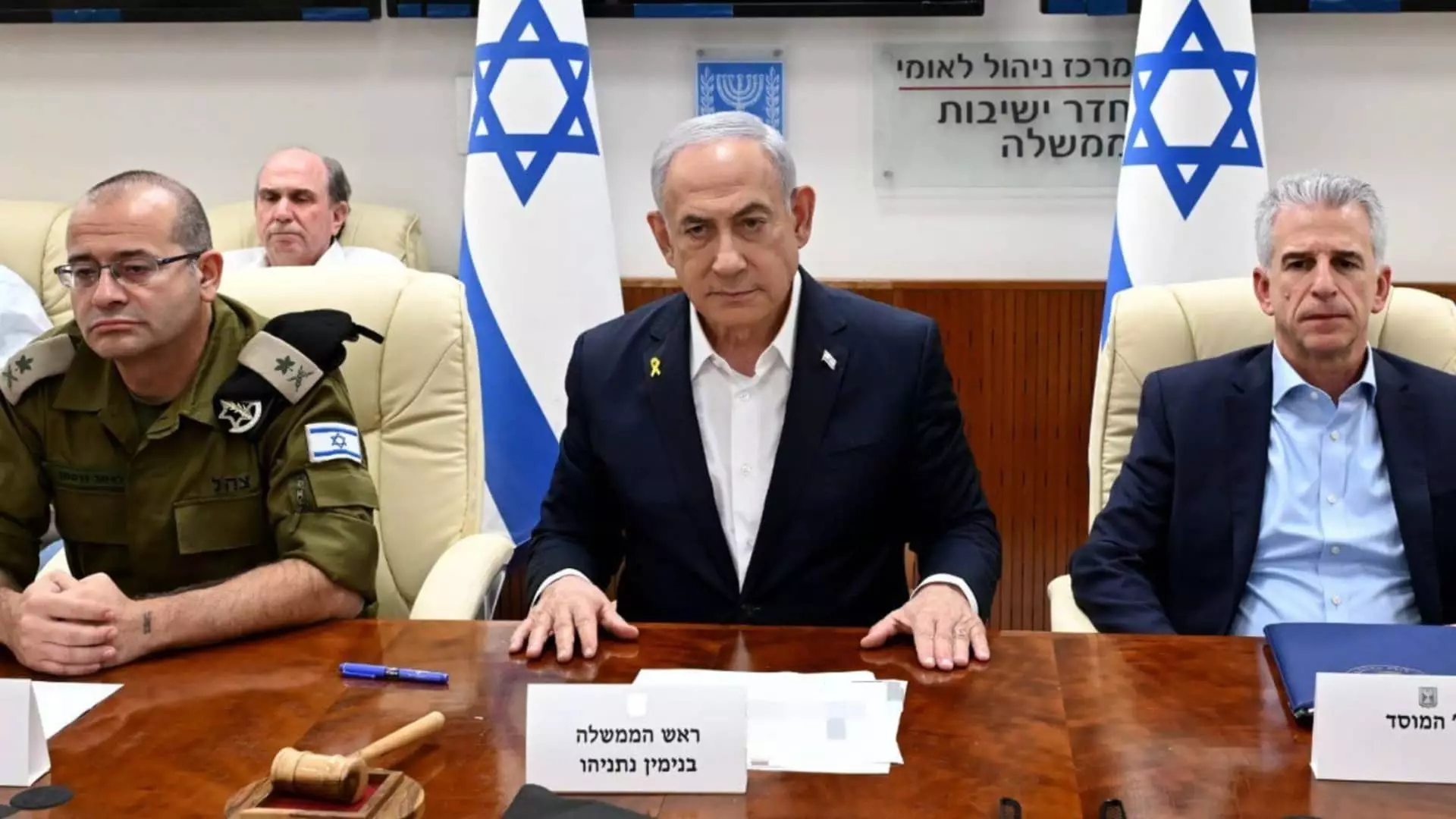The recent airstrikes by Israel on military targets in Iran constitute a significant escalation in the ongoing hostilities and complex geopolitical dynamics of the Middle East. This development comes on the heels of a ballistic missile attack from Iran, amid a backdrop of heightened tensions following Hamas’s assault on Israel on October 7. The strategic implications of these actions reveal not only the fragility of security in the region but also the potential for a broader conflict that could involve various international actors.
Israel’s decision to launch airstrikes early on a Saturday morning was framed as a necessary response to an increasing barrage of attacks originating from Iranian soil. Israeli military officials, including Rear Adm. Daniel Hagari, underscored the necessity of these strikes as integral to Israel’s right to defend itself against persistent threats. The tension escalated sharply following Iran’s missile attacks on Israel, which were reportedly reactions to Israel’s operations against Iran-backed militias in Lebanon. This cyclical pattern of retaliation reflects the ongoing hostilities that have become emblematic of Iranian-Israeli relations since the 1979 Islamic Revolution.
While explosions were reported in Tehran, the Iranian government’s initial response to the airstrikes has been notably muted. State-run media acknowledged the sounds while simultaneously attempting to downplay the severity by showcasing everyday activities in the city. This controversial tactic raises questions about the extent of the damage inflicted and the Iranian government’s willingness to disclose the consequences of the strikes. Earlier experiences suggest that Iran often adopts a defensive posture in public communications during military confrontations to maintain domestic morale and consolidate power.
The strikes add a new layer to an already complex theater of operations involving multiple nations and non-state actors in the Middle East. Syrian state media reported retaliatory missile barrages aimed at military targets in Syria. This intermingling of fronts illustrates the intricate web of alliances and enmities in the region, where the boundaries of sovereign nations are already blurred by the activities of various state and non-state actors. The presence of Hezbollah, an Iranian proxy in Lebanon that has been actively engaging with Israeli forces, further complicates the strategic calculus for Israel.
As military engagements intensify, the humanitarian situation in Gaza spirals further into crisis. Reports indicate that thousands of Palestinian lives have been lost in the crossfire of the ongoing conflict, with international organizations expressing alarm over the deteriorating conditions faced by civilians. The Israeli military’s operations, including ground offensives and airstrikes, have provoked widespread condemnation and raised ethical questions regarding the proportionality of military responses. The plight of residents caught in the conflict underscores the devastating human toll that such geopolitical rivalries extract.
The timing of the airstrikes coincided with U.S. Secretary of State Antony Blinken’s recent diplomatic tour in the region, during which he emphasized the importance of measured Israeli responses to avoid further escalation. U.S. involvement, albeit in a supporting role, points to the intricate connections between domestic politics and international relations. With U.S. officials receiving prior notifications about Israel’s military actions, the underlying question remains: how will American policy adapt in response to escalating violence in a region where instability threatens their long-term interests?
For decades, Israel and Iran have engaged in a shadow war characterized by covert operations, sabotage, and targeted killings. Israel’s recent strikes can be viewed as a continuation of this broader strategy to counter Iranian influence and military capabilities in the region. The assassination of Iranian nuclear scientists and cyber operations against Iranian infrastructure are high-profile examples of this prolonged engagement. Yet, as conventional warfare emerges more prominently, the rules of engagement are being rewritten, and the predictability of the conflict is increasingly undermined.
The latest airstrikes by Israel signify a critical juncture in Middle Eastern geopolitics where longstanding tensions could evolve into a more extensive regional confrontation. The intersection of military, humanitarian, and geopolitical elements necessitates close observation as global stakeholders grapple with the implications of a conflict that endlessly escalates. As Israel fortifies its military response and Iran vows to retaliate, the prospect of a broader regional war looms large, compelling observers to consider the profound consequences of sustained hostilities on both national and global scales.


Leave a Reply